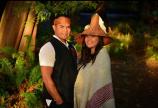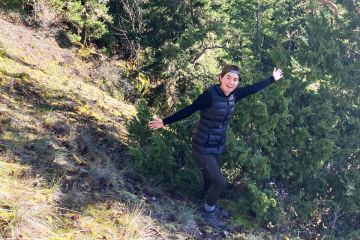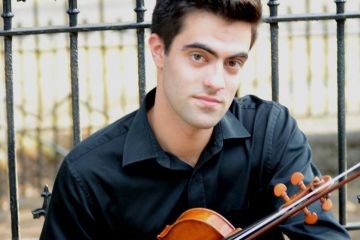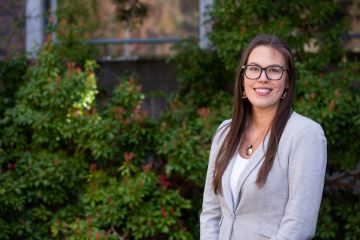Answering the matriarchal call to lead
- Kate Hildebrandt
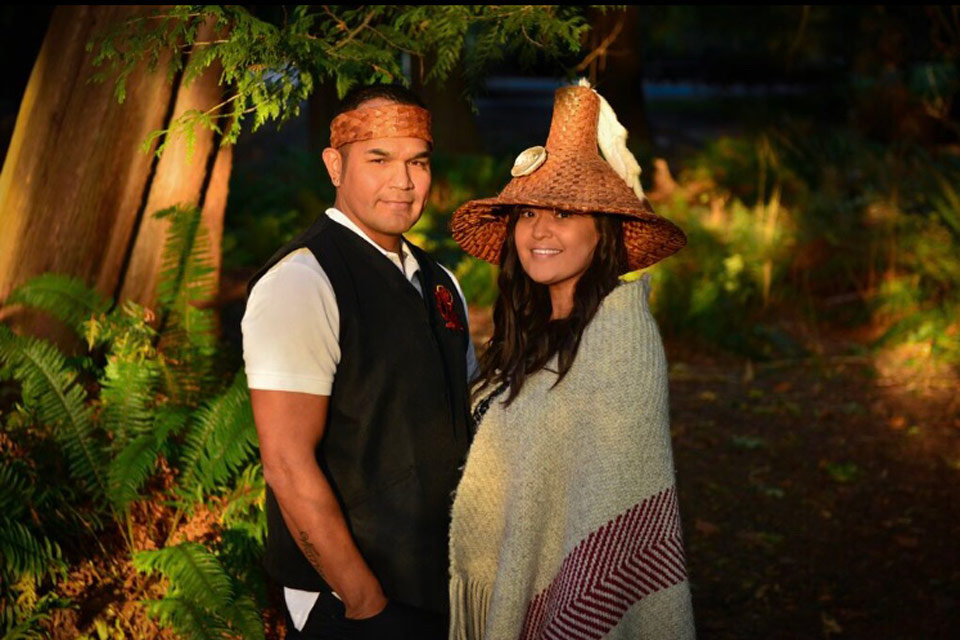
Dinner table conversations at Ashley Charleson’s house were, and still are, often centred around business and governance issues.
Both parents served several terms with the shíshálh Nation council of Sechelt, BC, one of the first Indigenous nations in Canada to write their own constitution, sanctioned in 1986. Also a leader in economic development, the shíshálh Nation runs several businesses including a forestry company and a shopping centre.
Born and raised in this thriving coastal community, Charleson remains devoted to the place, its people and their indelible ties to her ancestry.
She served a term on council, too, enjoying the experience and building a career—from band office administrative assistant to adult education coordinator to manager of the employment training and post-secondary education department. She is also the former board vice chair for the Indigenous Adult Higher Learning Association.
Little wonder, with that trajectory, that she set her sights on leadership with education as her pathway. UVic’s Indigenous Community Development and Governance two-year online diploma program with the School of Public Administration proved to be her next best step.
I went looking for a program like this. When I found UVic had an Indigenous online program, I knew this was what I wanted. I love learning online. I don’t want to have to leave my community to get an education. I want to stay here where my support system is.
—Ashley Charleson, UVic class of 2020
That support system is husband, Jason, as well as her parents, family and community. She is grateful to all for supporting her throughout her studies.
Indigenous-led diploma online
Interestingly, Charleson chose a UVic faculty and school with a long history in delivering distance education. Faculty and staff worked with chiefs and councils, traveling to their remote communities with “suitcase courses” more than 45 years ago to bring new learning where it was needed. An early adopter to online education, all schools with the Faculty of Human and Social Development offer comprehensive online degree programs today, many with Indigenous specializations. As a result, UVic has enabled many people to advance their education while working full-time, caring for their families and studying from home.
This diploma program also introduced Charleson to Indigenous women with shared interests from various points across Canada. An all-female cohort evolved after the only male student dropped out. Working full-time, pregnant with her first child, Ashley was engaged and amazed by the relationships that developed through collaborative online learning.
“I learned so much from these strong female leaders just by listening to them talk about how they managed governance in their own communities.”
Yet, it was the indigenous-led structure of the program that mattered most. “The instructors, the curriculum, the cohort, it was all Indigenous through and through. You want to talk about honouring the Calls to Action from Canada’s Truth and Reconciliation Commission? This is the way to do it.”
Women in governance
People are waking up through those Calls to Action, says Ashley, where more people are respecting Indigenous people for who they are. “There is a shift happening where educated women are stepping forward. That’s what I’m seeing.”
She talks of one student from Quebec, passionate about learning and working in her first language. “When she presented in her native tongue,” says Charleson, “we were all so inspired.”
Instructor Marcia (Dawson) Turner also had a profound impact on Charleson's learning. Marcia has worked as a band manager, administrator, policy person, and is also a graduate of the school, so theirs was a professional bond and a student-teacher relationship. “My time with Marcia was impactful, especially understanding the traditional matriarchal role of women in governance.”
I want to dig deep, learn more and make positive change knowing our ancestors are with us. This system, the way we do things now, is not our way. It was most certainly put upon us. In moving forward, we must look back to our traditional ways and incorporate those teachings into our daily lives.
—Ashley Charleson, UVic class of 2020
The determination in her voice is clear, more so as she shares the story of her grandmother, Diane Joe. “She was fluent in our language but that link was broken,” says Charleson on why her gramma did not pass the language on to her father.
Many Indigenous parents who survived residential school raised their children to only speak English to protect and prepare them for a regulated, colonized world.
Even so, Grandma Dee went on to become a teacher with the Sechelt public school district and, in the 1990s, lived to see her traditional She Sháshishálhem language offered as an alternative to French. The language continues to be taught today at Mom Ay Mon, Kinnikinnick and Chatelech schools, the Alternative School and Capilano University.
Next up for Charleson: an online master’s degree program. But that will have to wait: mother and father are busy with new daughter Graysen Dee, who arrived one month after Charleson completed her diploma. Now with time to rest and nurture the little one, Charleson contemplates their promising futures with hope more Indigenous people pursue post-secondary education.
Photos
In this story
Keywords: convocation, student life, public administration, Indigenous
People: Ashley Charleson
Publication: The Ring

